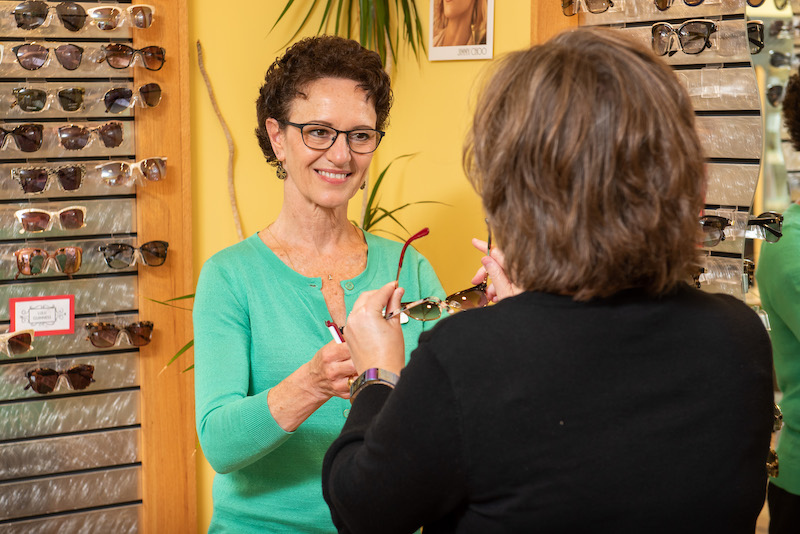Sunglass Expressions
Sunlight: What’s the big deal?
There are two bands of harmful ultraviolet rays in sunlight: UVA and its possibly more dangerous counterpart, UVB-one of the known causes of cataracts. That means bad news for us because, if untreated, cataracts can gradually cloud the eye and even cause blindness.
But wait. There’s more!
The sun’s damage to the eyes doesn’t stop with cataracts. Exposure to visible light is also a key factor in the gradual degeneration of the retina and in sunburn of the cornea, known as “snow-blindness.”
So, Now What?
The good news is that there are ways to protect your eyes from the sun. Nothing’s 100 percent, but if you’re diligent about wearing quality sunglasses with 100 percent UVA/UVB blocking lenses, you’ll be well armed. Now that you know you need sunglasses, it’s time to start shopping around. But where? The local drug store? Your eyewear dispenser? A department store?
Be careful… In the U.S., Commercial, “off-the-rack” sunglasses often do not provide full UV protection.
In fact, lenses in these kinds of sunglasses may actually cause your eyes to absorb more UV light than normal. This is because your pupils dilate when you wear sunglasses.
If the sunglasses don’t filter out UV light, more UV light will enter your eyes than it would if you weren’t wearing sunglasses at all and your pupils were constricted just the usual amount!
While “fun” sunglasses and quality sunglasses may resemble one another, the similarity ends there. Quality sunglasses are made of optically ground plastic, usually something called “CR-39.” Optically ground lenses are superior because they have true curves, substantial “body” that helps to maintain their shape, and clear optical-quality vision.
Even though the lenses are the most important part of sunglasses, you still need to pay attention to the frame. With an “off-the-rack” pair of sunglasses, the frame usually cannot be tightened or properly adjusted. Frames used for good sunglasses, however, are of the same quality as those used for prescription glasses. They can be adjusted and once fit, will hold their adjustment.
Get Polarized
Of course, sunglasses aren’t just for the summer. Experts recommend wearing shades whenever the light is bright enough to make you squint, which means even on cloudy days, and especially at high elevations. Sunglasses with polarized lenses can make a dramatic difference by reducing glare. Especially the glare from the highway, on the water or grass, from the snow, on car windows and any other place glare produces itself.
Ready, Set, Shop!
Sunglasses protect your eyes and boost your cool-quotient in one fell swoop. Now it’s up to you to find the pair you like best.
EXPRESS YOURSELF at SUNGLASS EXPRESSIONS!
